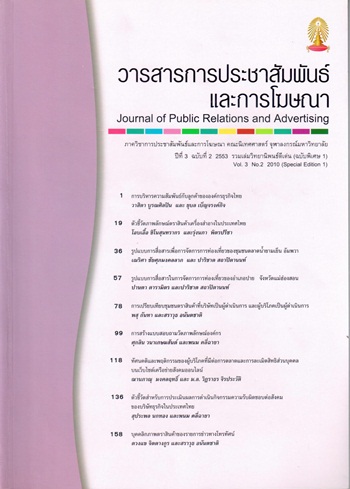ตัวชี้วัดสำหรับการประเมินผลการดำเนินกิจกรรมความรับผิดชอบต่อสังคมของบริษัทธุกิจในประเทศไทย
Main Article Content
Abstract
The research objective is to find indicators os corporate social responsibility (CSR) evaluation of Thai business firms. The methodology divided into 2 parts. 1) Qualitative research,in-dept interview is used for data collecting among 6 people of academic and professional experts in CSR. 2) Quantitative research, questionnaire is used for survey research among 224 samples from the listed companies of the Stock Exchange of Thailand in 2009.
The research finds that the experts give the meaning of CSR in key term as means to commit with responsibility in economic, quality of life and environment for 2 main target groups: primary stakeholders such as customer, trader, employee, employee’s family executive, community , etc., and secondary stakeholders such as public, business competitor, etc., in order to promote good corporate reputation awareness that leads to sustain of the corporate.
The factor analysis concludes that there are 4 factors of indicators for CSR evaluation as follows;
1. Primary stakeholders : such as trust from shareholders, customer’s satisfaction, fare return benefit for shareholders, trust from traders, fare return benefit for employee, less complaint, low employee turn over rate, fare treat to traders and proud of shareholders.
2. Secondary stakeholders : such as trust and support from community, trust and support from people in society and trust from mass media person.
3. Profit and Branding : such as increase income, strength brand positioning, positive brand felling, long term profit and brand differentiate.
4. Pressure Group : such as trust and support from Non-government organizations (NGOs), trust and support from government.


